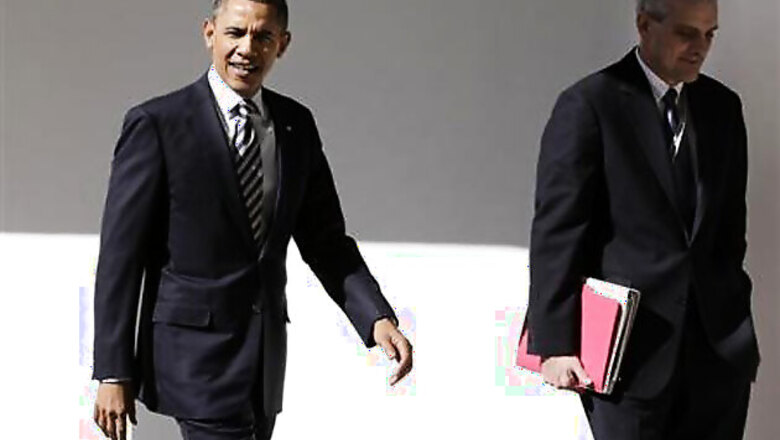
views
President Barack Obama does not believe the recently disclosed top-secret National Security Agency surveillance of phone records and Internet data has violated Americans' privacy rights, his chief of staff said on Sunday.
Denis McDonough, appearing on CBS's "Face the Nation" program, also said he did not know the whereabouts of Edward Snowden, the former NSA contractor who said he was the source of reports in Britain's Guardian newspaper and The Washington Post about the agency's monitoring of phone and Internet data at big companies such as Verizon Communications Inc (VZ.N), Google Inc (GOOG.O) and Facebook Inc (FB.O).
The administration has said the top-secret collection of massive amounts of "metadata" from phone calls - raw information that does not identify individual telephone subscribers, was legal and authorized by Congress in the interests of thwarting militant attacks. It has said the agencies did not monitor calls.
Asked whether Obama feels he has violated the privacy of Americans, McDonough said, "He does not."
While he defended the surveillance, McDonough said "the existence of these programs obviously have unnerved many people." He said Obama "welcomes a public debate on this question because he does say and he will say in the days ahead that we have to find the right balance, and we will not keep ourselves on a perpetual war footing."
Revelations of the NSA's broad monitoring of phone and Internet data has drawn criticism that the Obama administration has extended, or even expanded, the security apparatus the George W. Bush administration built after the September 11, 2001, attacks.
"We owe it to the American people to have a fulsome debate in the open about the extent of these programs," Senator Mark Udall, a Colorado Democrat a long-time critic of the surveillance programs, said on NBC's "Meet the Press."
Describing the surveillance overseen by the secret Foreign Intelligence Surveillance Court, Udall said, "I just don't think this is an American approach to a world in which we have great threats. My number one goal is to protect the American people, but we can do it in a way that also respects our civil liberties."
McDonough said Congress authorized the programs as a way to thwart plots against Americans and that lawmakers should stay up to date on how they are run. The administration has said the program collected only "metadata" - raw information that does not identify individual telephone subscribers and did not monitor calls.
"The president is not saying 'trust me.' The president is saying I want every member of Congress, on whose authority we are running this program, to understand it, to be briefed about it, and to be comfortable with it," he said.
House of Representatives Intelligence Committee Chairman Mike Rogers, a defender of the surveillance efforts, said the NSA, as soon as this week, will release information on terrorism threats that were halted by the telephone surveillance program.
"We know that there are dozens of them, and the reason they're being careful is we want each of the instances that will be provided, hopefully, early this next week ... to be as accurate as we can and not disclose a source or a method of how we disrupted the attack exactly," the Rogers, a Michigan Republican, said on CNN's "State of the Union" program.
Rogers said he expected Snowden, whose last known location was in Hong Kong, was still somewhere in China.
FBI Director Robert Mueller said last week that authorities would move aggressively to track down Snowden and hold him accountable for leaking the details of extensive and top-secret surveillance efforts.
Former Vice President Dick Cheney, interviewed on "Fox News Sunday," said the United States might have been able to prevent the September 11 attacks if the surveillance programs had been in place then.
"As everybody who has been associated with the program's said if we had this before 9/11, when there were two terrorists in San Diego - two hijackers - able to use that program, that capability against the target, we might have been able to prevent 9/11," he said.




















Comments
0 comment